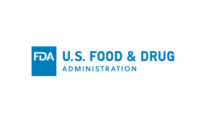FDA Announces Nationwide End to PFAS in Grease-Proofed Food Packaging

Image credit: Quin Engle via Unsplash
The U.S. Food and Drug Administration (FDA) has announced that, thanks to collaborative efforts between the agency and industry, toxic per- and polyluoroalkyl substances (PFAS) are no longer being sold by manufacturers for use in food-contact grease-proofing agents in the U.S. This move eliminates one of the major sources of dietary exposure to the “forever chemicals.”
FDA also revealed that it is working towards a validated analytical method that would enable the agency to monitor the market for PFAS in food packaging.
Grease-proofing substances are applied on paper and paperboard packaging to prevent the leaking of grease and oil, and for water-resistant properties. The phased-out substances containing PFAS were applied to fast-food wrappers, microwave popcorn bags, take-out paperboard containers, pet food bags, and similar packaging. Dietary exposure to PFAS through foods in contact with grease-proofed packaging is of public health concern due to the mounting body of evidence pointing to the associated health consequences of PFAS, including various types of cancer, reproductive and fetal harm, liver damage, metabolic and thyroid effects, and other problems. The inability of PFAS to break down in the environment and the human body has earned them the nickname “forever chemicals,” as they persist indefinitely and build up over time.
The end to the use of PFAS for food-contact applications in the U.S. is the result of an industrywide voluntary commitment to not sell food-contact substances that contain certain types of PFAS, which was initiated by an FDA postmarket safety assessment of PFAS in 2020. Although the original commitment letters received by FDA from the manufacturers state that paper and paperboard products containing these food contact substances could take 18 months to completely remove from sale, most of the companies have exited the market prior to their original phase-out date. In its latest announcement, FDA also confirmed that some manufacturers have voluntarily phased-out the sale of food contact substances containing additional types of PFAS in different food-contact grease-proofing substances.
Looking for a reprint of this article?
From high-res PDFs to custom plaques, order your copy today!







